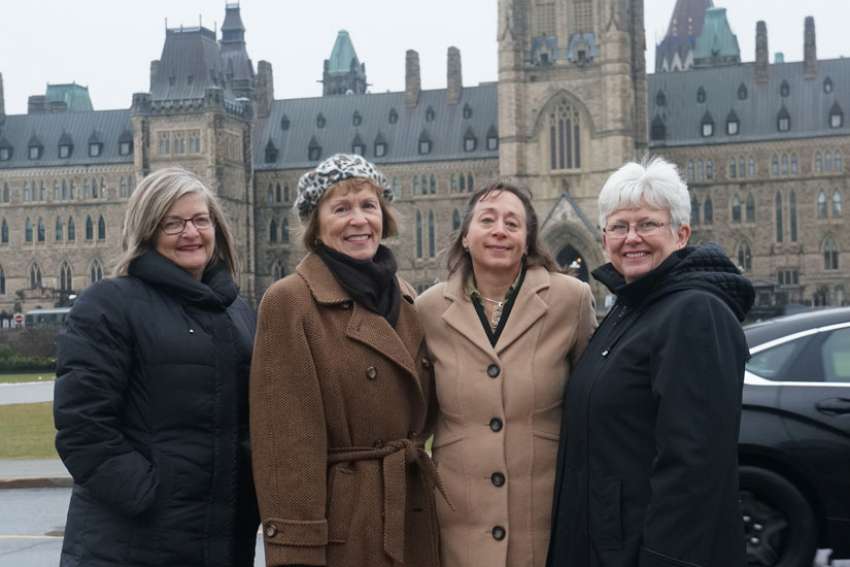A four-woman delegation from the CWL visited Ottawa Nov. 27-30 to meet with public officials on several issues, including a push to amend Canada's Health Act to include palliative care.
At its annual national convention in August, the membership agreed to five resolutions in which to build action plans, from immigration to Canada's Food Guide.
The CWL's resolution on palliative care includes urging the government to amend the Canada Health Act to “identity palliative care as an insured health service.”
The group is monitoring Conservative MP Marilyn Gladu’s private member’s bill C-277 that asks for a national framework for palliative care, but CWL legislation chair Nancy Simms says the organization wants to go further by including it under the Canada Health Act. “It’s great to have a framework, but if you don’t have finances it doesn’t go so well,” she said.
“Only 16 to 30 per cent of Canadians have access to quality palliative care,” said resolutions chair Joan Bona. “It’s quite alarming.”
CWL president Margaret Ann Jacobs, president-elect Anne-Marie Gorman; Simms and Bona met with Senator Betty Unger and Senator Jane Cordy, who mentioned the CWL in an October speech before the Senate and called their resolution “a reasonable request by the CWL that would benefit all Canadians.”
The delegation also met with the Opposition Indigenous Affairs critic, MP Cathy McLeod, who set up an e-petition at Simms request to have home care recognized as an insured health care service.
Another stop was made with Immigration Canada officials about the CWL resolution to urge the government to “amend the Immigration and Refugee Protection Act so that foreign workers may apply for permanent resident status regardless of occupational classification.”
They were told a report is coming in January from the House of Commons HUMA Committee (Human Resources, skills and social development) on the Temporary Foreign Workers program, said Bona.
After meeting with officials from Health Canada, the delegation said they were pleased to discover a new Canada Food Guide is in the works that is “looking at the global aspect,” and addressing everything from nursing homes to restaurants, said Simms.
“The new guide is going to meet the needs of all sectors,” Gorman said.
The women met with other Health Canada officials concerning their another of their resolutions about “warning labels on food and drug products for all inactive substances and additives.”
They discovered many of these warnings are in place for drugs, “but people are choosing not to access the information,” said Gorman. “We need to be better educated ourselves,” Gorman said.
They also brought up a CWL resolution from 2015 with Public Health Canada on increasing early intervention and access for children and youth to mental health services.
This was Jacobs' third trip to Ottawa as part of a delegation, her second time meeting with representatives of the Liberal government, and her first as CWL president. The twice-a-year visits give the women a chance to explain to government officials what the CWL is and how, as Canada’s largest women’s organization, it is possible to disseminate messages to members.
“I think we were favourably received,” Jacobs said.


